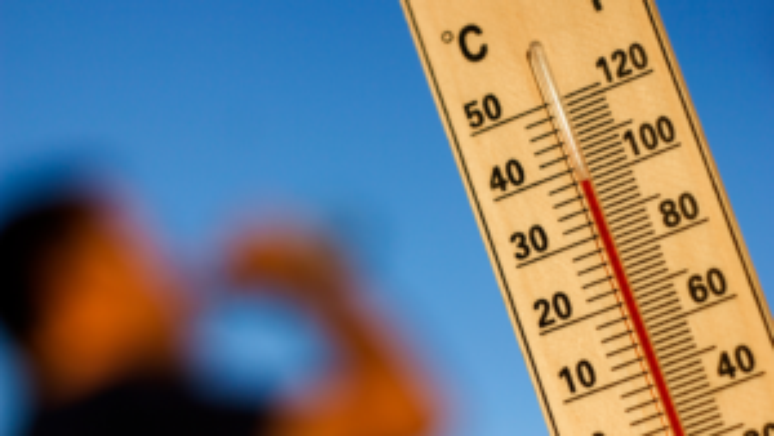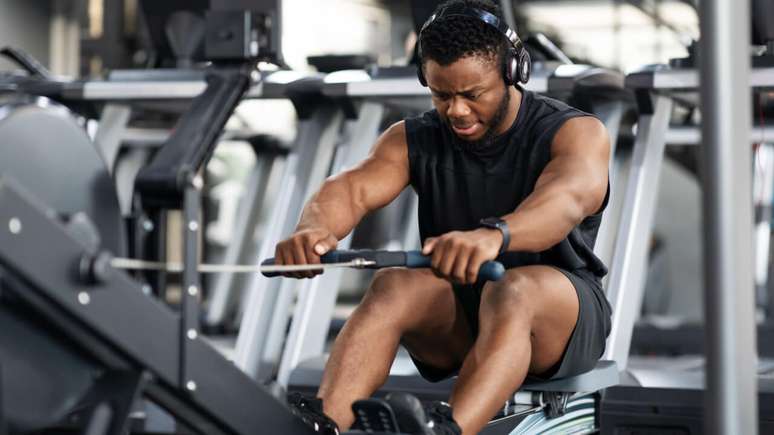According to INMET, the heat waves felt at the end of winter are expected to continue throughout spring. They cause a decrease in immunity in the body and harm athletes.
According to the National Institute of Meteorology (INMET), the winter of 2023 was one of the warmest since 1961. The cities of Cuiabá (MT) and São Paulo (SP) had the warmest winter in the last 63 years. Excessive heat brings with it low relative air humidity and this climatic condition causes damage to the mucous membranes that are part of the respiratory system (involving the nose, pharynx, bronchi and trachea), as they dry out and have to work harder to avoid this situation. The heat waves felt by Brazilians at the end of winter, and which are expected to continue throughout the spring, cause a decrease in the body’s immune defenses, harming athletes. Health professionals recommend exercising early in the morning or late afternoon, which helps to significantly improve the degree of discomfort caused by the lack of moisture in the mucous membranes. Dryness forces the mucous membranes to secrete more liquids to compensate for the cooling of the body. For our body to function properly, it must be in a temperature range that varies between 36.5ºC and 37ºC, at which time the proteins that play the role of controlling and functioning the metabolism do not suffer. When the outside temperature rises too much, our body needs to adjust its “natural thermostat”. This system is located within our brain, more precisely in the hypothalamus, which governs our autonomic nervous system and controls various metabolic, hormonal functions and physicochemical factors, such as pressure and temperature, implementing our functions and ensuring homeostasis. Many neurons in the central nervous system are sensitive to temperature, but neurons in the hypothalamus translate and work to dissipate heat when perceived in excess. These actions are peripheral vasodilation, increased sweating and general decrease in somatic activity. Blood vessels in the extremities dilate and help dissipate heat through sweat and breathing, which causes a drop in blood pressure as there is greater distribution of blood flow throughout the body. This also decreases blood flow to the brain.
©Marccophoto via Canva.com Excess sweating – as the body’s attempt to dissipate heat – increases the loss of mineral salts, including sodium chloride, which increases the likelihood of cramps or spasms and muscle contractions, while also increasing susceptibility to injury. The damage caused by heat waves is mainly headaches. Excessive heat causes athletes to dehydrate faster. Blood is more concentrated in other regions of the body and this can somewhat alter blood flow in the skull. This factor modifies the perception of the membranes surrounding the brain, generating an unpleasant sensation of discomfort, since the brain needs excellent blood perfusion for correct functioning.
Read this and other news on our channel at:
WhatsApp It is important to pay particular attention to children and young athletes who, by spending more energy training than adults, produce more metabolic heat and therefore have a greater tendency to further increase their internal temperature. Symptoms of weakness and lack of energy can also be caused by disordered blood flow, which is reflected in low blood pressure. Athletes are recommended to take some precautions, such as making the environment where they train and rest more humid, drinking lots of water and washing their nose with saline solution. When the body heats up, the blood vessels dilate, which lowers blood pressure and so the heart has to work harder to push blood through the blood vessels. For this reason, athletes may also feel more tired than normal and out of breath. It is essential that they increase their water intake (beyond normal) for the body to maintain its proper functioning. Unfortunately, the recent heat waves are the result of climate changes that have occurred in recent years and there is a real possibility of an increase in the frequency, intensity and duration of these extreme events not only in Brazil, but throughout the world. We are now fighting a dispute that must – not only in the sporting sphere, but also in the humanitarian sphere – move out of the field of individuality and into the collective one, so that we can achieve great results in sport and also in the maintenance of life as we know it.
Text by: Amanda Ciaramicoli, sports psychoanalyst
Source: Terra
Ben Stock is a lifestyle journalist and author at Gossipify. He writes about topics such as health, wellness, travel, food and home decor. He provides practical advice and inspiration to improve well-being, keeps readers up to date with latest lifestyle news and trends, known for his engaging writing style, in-depth analysis and unique perspectives.









